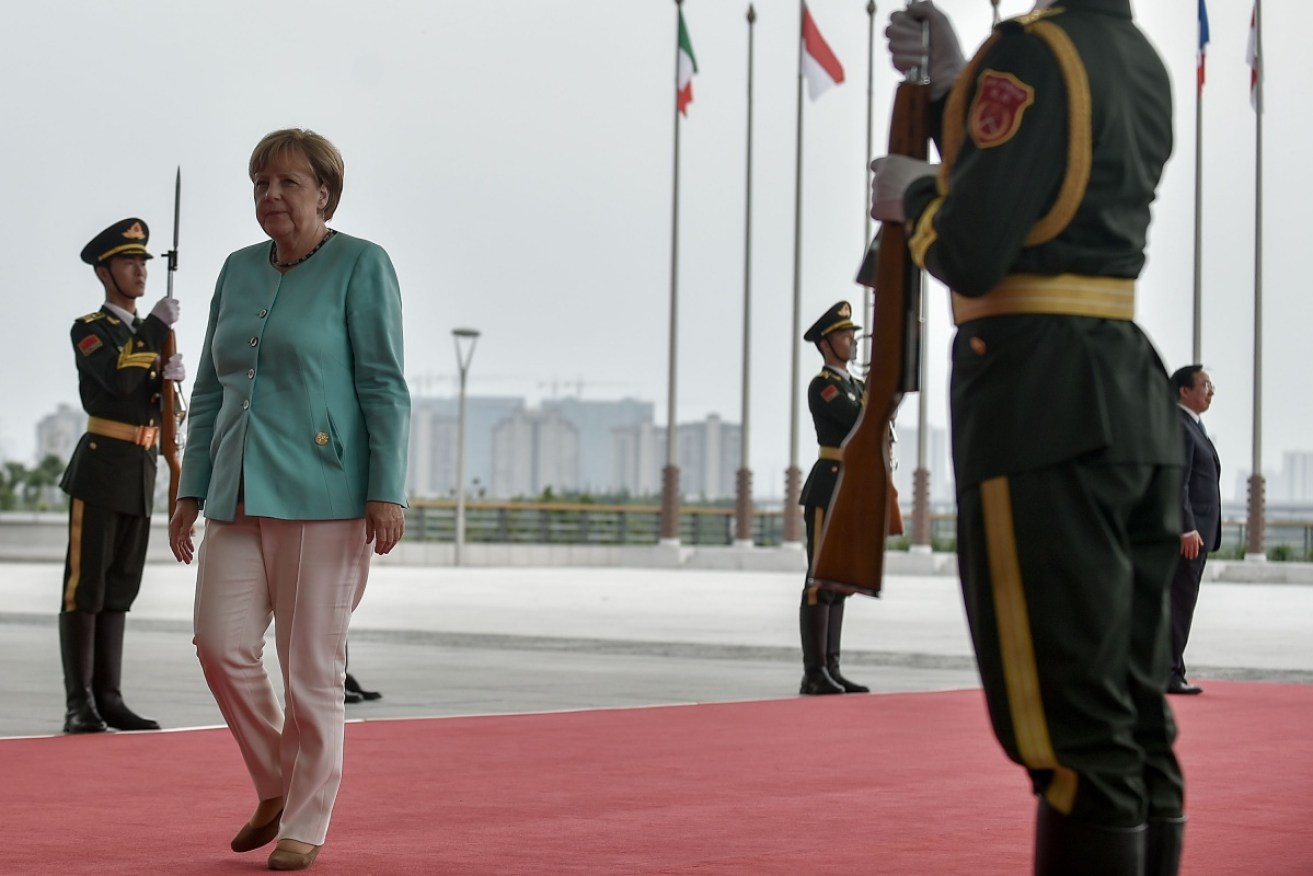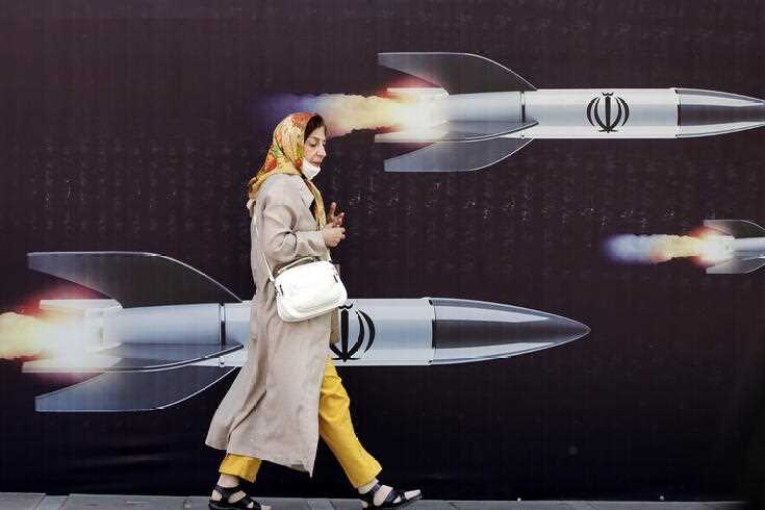Right-wing anti-migrant party wins big in Germany

German Chancellor Angela Merkel is in Hangzhou as her party back home falters in state elections. Photo: Etienne Oliveau/Getty
German Chancellor Angela Merkel’s conservative Christian Democrats Union (CDU) has fallen to third place in a state election behind the centre-left Social Democrats (SPD) and anti-immigrant Alternative for Germany (AfD) party, exit polls show.
The AfD campaigned hard against the Chancellor’s policies on refugees and obtained about 21 per cent of the vote in its first bid for seats in the regional Parliament of Mecklenburg-Vorpommern, according to exit polls shortly after voting ended.
Ms Merkel’s Christian Democratic Union, meanwhile, garnered just 19 per cent in its worst-ever showing in the north-eastern state, while the Social Democrats maintained top place with about 30 per cent.
Latest election suggest Merkel's humanitarian open door policy has let in anti-immigrant fascist parties. #shame https://t.co/PtEVBDQid8
— Robert Verkaik (@robertverkaik1) September 4, 2016
“This isn’t pretty for us,” said Michael Grosse-Groehmer, one of Ms Merkel’s top deputies in Parliament in Berlin in a ZDF TV interview.
“Those who voted for the AfD were sending a message of protest.”
The election took place in Ms Merkel’s home state exactly a year after the Chancellor’s decision to open Germany’s borders to hundreds of thousands of refugees and the discontent was palpable.
“This is a slap in the face for Merkel — not only in Berlin but also in her home state,” said Frauke Petry, co-leader of the AfD.
“The voters made a clear statement against Ms Merkel’s disastrous immigration policies. This put her in her place.”
The far-left Left Party won 12.5 per cent, down from 18.4 per cent five years ago, while the pro-environment Greens won 5 per cent, down from 8.7 per cent.
The far-right NPD was knocked out of the state assembly, falling below the 5 per cent threshold for the first time since 2006 with 3.2 per cent.
AfD making nationwide gains: New poll
Despite losing support, the SPD (24 seats) and the CDU (16) won enough seats to be able to continue their grand coalition in Mecklenburg-Vorpommern with the AfD as the second-largest bloc in the 71-seat state assembly with 18 seats.
The SPD, which could also form a coalition with the Left and Green parties, said it was leaving its options open.
Voters already punished Ms Merkel in three state elections in March, voting in droves for the AfD and rejecting Ms Merkel’s Christian Democrats.
Founded in 2013, the AfD now has won seats in nine of the 16 state assemblies across the country.
However, it has no chance of governing in Mecklenburg-Vorpommern since the other parties have said they would not form a coalition with the party.
The AfD is also making gains nationwide, a new poll showed on Sunday.
If the national election were held next week, the AfD would win 12 per cent of the vote, making it the third-largest party in Germany, according to a poll conducted by the Emnid institute for the Bild newspaper and published on Sunday.
Ms Merkel, mulling a bid for a fourth term as chancellor, made a last-minute campaign appearance on Saturday in Mecklenburg-Vorpommern, warning against the politics of “angst” offered by AfD with its virulent anti-refugee stance.








